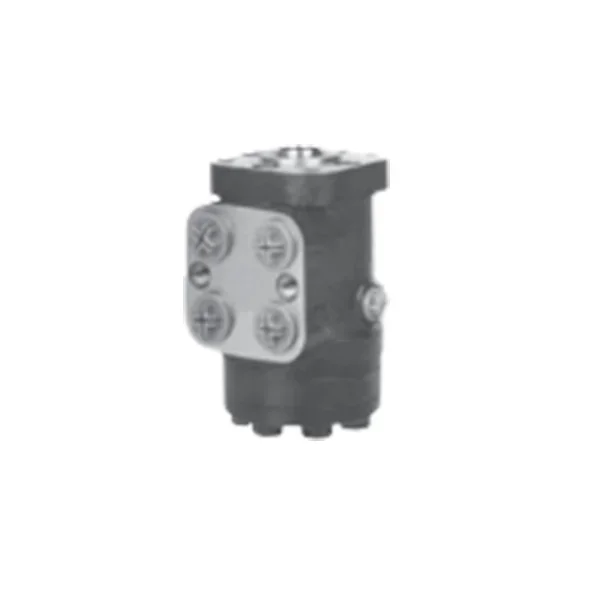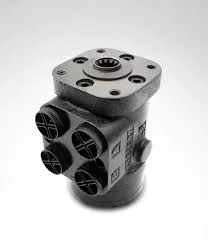In the realm of industrial machinery and vehicles, precise and efficient steering control is paramount for both safety and productivity. Hydraulic Steering Control Units (SCUs) play a crucial role in achieving this objective across a diverse range of applications. One such example is the Series 103S-4 Hydraulic SCU, which offers a compact and powerful solution for various low-speed vehicles and machinery. This article delves into the industrial applications of hydraulic SCUs, using the Series 103S-4 as a case study to illustrate their significance and versatility.
Understanding Hydraulic SCUs
Hydraulic SCUs are integral components of steering systems, designed to amplify the input force from the operator to generate a more powerful output steering force. This amplification is achieved through the use of hydraulic fluid, which is pressurized and directed to create the necessary torque for steering. The Series 103S-4, with its open-center non-reaction design, exemplifies the efficiency and reliability that hydraulic SCUs can offer.

Compact Design for Space-Constrained Environments
The Series 103S-4 Hydraulic SCU stands out for its compact structure, making it ideal for assembly in narrow spaces. This feature is particularly beneficial in industrial settings where machinery often operates in confined areas. For instance, in the tight aisles of a warehouse, a forklift equipped with a Series 103S-4 SCU can maneuver with ease, thanks to the unit's space-saving design. Similarly, in the cramped quarters of a tractor or a combined harvester, the SCU's compactness ensures that it fits seamlessly without compromising the overall functionality of the vehicle.
Versatile Applications in Low-Speed Vehicles
Low-speed vehicles, such as forklifts, tractors, and engineering or road construction machinery, rely heavily on hydraulic SCUs for their steering capabilities. The Series 103S-4, with its range of displacement options from 50 ml/r to 400 ml/r and corresponding rated flow rates, can be tailored to meet the specific requirements of different vehicles. In the case of forklifts, a smaller displacement model may suffice for indoor operations, while a larger displacement unit would be more suitable for heavy-duty outdoor tasks. This versatility allows industrial operators to select the right SCU model to optimize the performance of their vehicles.
Marine Applications: Steering with Precision
Beyond land-based vehicles, hydraulic SCUs also find application in marine environments, specifically in the steering of rudders. The Series 103S-4, with its maximum input pressure of 16 MPa and relief valve pressure settings ranging from 06 to 16 MPa, can handle the demanding conditions of marine steering. The ability to maintain a maximum continuous back pressure of 2.5 MPa ensures that the SCU operates reliably even under the dynamic forces exerted by water currents. This makes it an ideal choice for steering systems in boats and other marine vessels, where precise control is essential for navigation and maneuvering.

Ease of Operation and Maintenance
One of the key advantages of hydraulic SCUs like the Series 103S-4 is their ease of operation. The input of less force required to generate a powerful output steering force means that operators can steer with minimal effort, reducing fatigue and enhancing control. Additionally, the reliability of these units contributes to reduced maintenance requirements and downtime. The robust construction and high-quality materials used in the Series 103S-4 ensure that it can withstand the rigors of industrial use, providing long-lasting performance with minimal need for servicing.
Mounting Flexibility and Integration
The mounting data provided for the Series 103S-4 SCU highlights its flexibility in terms of integration with existing systems. With various port thread options and mounting configurations, it can be easily adapted to fit different types of machinery and vehicles. This mounting flexibility is crucial in industrial applications, where retrofitting or upgrading steering systems is often necessary to improve efficiency or accommodate new equipment. The ability to seamlessly integrate the Series 103S-4 into existing setups without extensive modifications saves time and resources, making it a practical choice for industrial operators.

Conclusion
Hydraulic Steering Control Units, exemplified by the Series 103S-4, are indispensable in a variety of industrial applications. Their compact design, versatility in low-speed vehicles, precision in marine steering, ease of operation and maintenance, and mounting flexibility make them a preferred choice for enhancing the steering capabilities of industrial machinery and vehicles. As industries continue to evolve and demand more efficient and reliable solutions, hydraulic SCUs will undoubtedly remain at the forefront of steering technology, driving innovation and productivity in the years to come.
At Shanghai AJA Technology Co., Ltd., we are committed to providing high-quality products and excellent customer service. Whether you need assistance with hydraulic motor cleaning or any other hydraulic component-related queries, our knowledgeable staff is ready to help.
Welcome to inquiry if you need to know more about Hydraulic Steering Control Unitsdetails or order wholesale.


